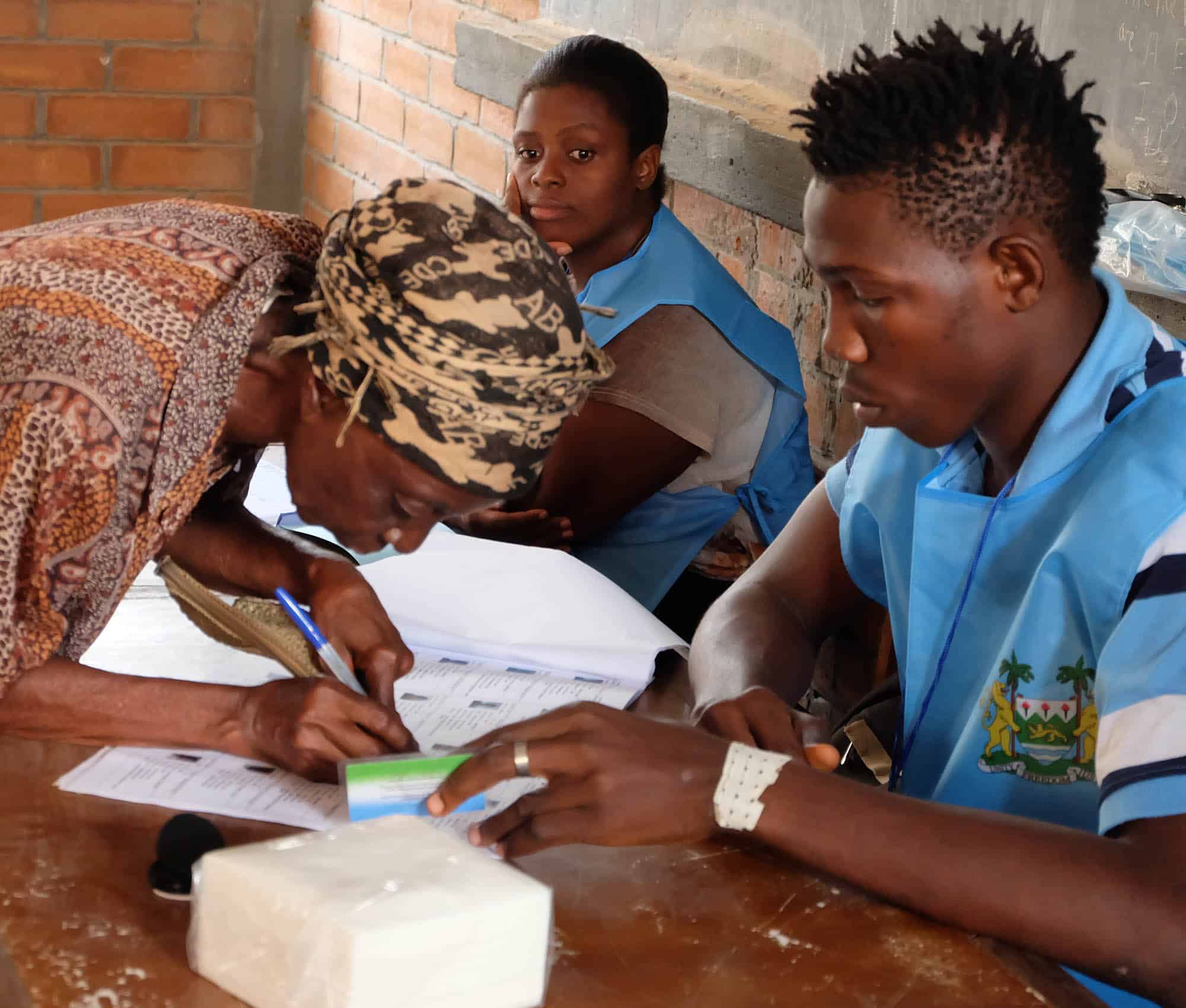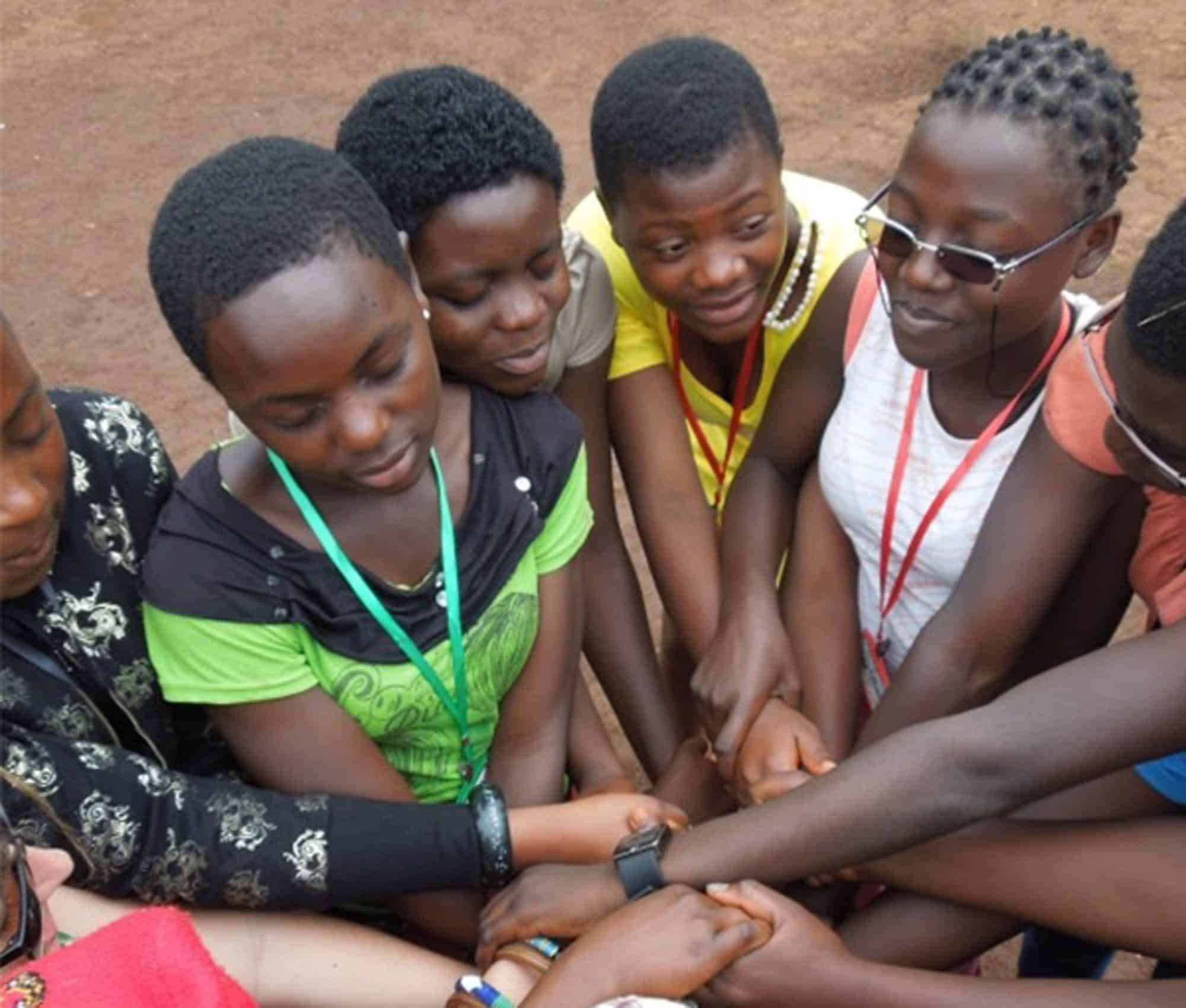The work of enabling economic and political transformation in African societies must be the collective responsibility of all citizens.

1. Education
UNESCO reports that of all the regions of the world, sub-Saharan Africa has the highest rate of school exclusion, with more than one-fifth of children aged 6-11 out of school, as well as one-third of youth aged 12-14 and 60% of youth aged 15-17. With the continent’s overall youth population estimated to reach 452 million by 2050, the continent’s youth bulge represents both an opportunity and a risk if improperly educated. Beyond access to basic education, there is an urgent need to devise a strategy for futuristic higher education on the continent, to enhance research and productivity across all sectors.

1. Education
UNESCO reports that of all the regions of the world, sub-Saharan Africa has the highest rate of school exclusion, with more than one-fifth of children aged 6-11 out of school, as well as one-third of youth aged 12-14 and 60% of youth aged 15-17. With the continent’s overall youth population estimated to reach 452 million by 2050, the continent’s youth bulge represents both an opportunity and a risk if improperly educated. Beyond access to basic education, there is an urgent need to devise a strategy for futuristic higher education on the continent, to enhance research and productivity across all sectors.

2. Entrepreneurship & Employability
The massive growth that has been recorded in African economies over the past two decades, seeing 10 African countries rank in the top 25 fastest growing economies in the world between 2004 and 2014, has mostly been driven by export of commodities. In spite of slightly improved education indices across the continent, unemployment numbers are still sky-high. The African Development Bank forecasts that as many as 263 million young people in Africa will lack an economic stake by 2025. Curiously, there also appears to be a slight positive correlation between levels of youth unemployment and gross enrollment in tertiary education institutions in several countries across the continent, further enhancing the need for a drive towards entrepreneurship and employability.

2. Entrepreneurship & Employability
The massive growth that has been recorded in African economies over the past two decades, seeing 10 African countries rank in the top 25 fastest growing economies in the world between 2004 and 2014, has mostly been driven by export of commodities. In spite of slightly improved education indices across the continent, unemployment numbers are still sky-high. The African Development Bank forecasts that as many as 263 million young people in Africa will lack an economic stake by 2025. Curiously, there also appears to be a slight positive correlation between levels of youth unemployment and gross enrollment in tertiary education institutions in several countries across the continent, further enhancing the need for a drive towards entrepreneurship and employability.

3. Agriculture
With the evident decline in the global market value of Africa’s natural resources, attention is fast shifting back towards the much-neglected, but indispensable, agricultural sector. Farming is estimated to be the primary source of income for more than 60% of African families, yet with more than half of the world’s uncultivated land (more than 200 million hectares) present on the continent. Africa’s fledgling agricultural industry needs massive investment in critical technology, research for higher crop yield, land reform to empower local farmers, and improved trade policies to ensure higher returns for farmers. No sector has higher potential to lift people out of poverty than agriculture.

3. Agriculture
With the evident decline in the global market value of Africa’s natural resources, attention is fast shifting back towards the much-neglected, but indispensable, agricultural sector. Farming is estimated to be the primary source of income for more than 60% of African families, yet with more than half of the world’s uncultivated land (more than 200 million hectares) present on the continent. Africa’s fledgling agricultural industry needs massive investment in critical technology, research for higher crop yield, land reform to empower local farmers, and improved trade policies to ensure higher returns for farmers. No sector has higher potential to lift people out of poverty than agriculture.

4. Infrastructure
The lack of critical infrastructure on the continent has been rightly identified as the predominant impediment to economic growth. Africa's infrastructure deficit cuts across the energy, transportation, communication, water, and healthcare sectors among others. Due to corruption, weak investment policies, and poor financial management, several African countries continue to lag on their infrastructure investment priorities, with the absence of adequate infrastructure estimated to cost Africa approximately 2 percentage points off GDP growth annually. The World Bank estimated that Africa needed to spend about $93 billion on infrastructure by 2020 in order to meet up with global demands and to lower the cost of doing business, improve the value of local production, stimulate trade and encourage further investment. We missed that target.

4. Infrastructure
The lack of critical infrastructure on the continent has been rightly identified as the predominant impediment to economic growth. Africa's infrastructure deficit cuts across the energy, transportation, communication, water, and healthcare sectors among others. Due to corruption, weak investment policies, and poor financial management, several African countries continue to lag on their infrastructure investment priorities, with the absence of adequate infrastructure estimated to cost Africa approximately 2 percentage points off GDP growth annually. The World Bank estimated that Africa needed to spend about $93 billion on infrastructure by 2020 in order to meet up with global demands and to lower the cost of doing business, improve the value of local production, stimulate trade and encourage further investment. We missed that target.

5. Natural Resource Management
Africa’s natural resource endowment has been a source of constant consternation for local and international partners, with the ‘resource development curse’ being the best description of the continent’s ineptitude around converting potential to boon. With 90% of the world’s platinum reserves, 80% of chromite, 65% of diamond, 60% of manganese and cobalt and 40% of gold, among other resources including oil, natural gas, extensive coastlines, flora and fauna, Africa’s natural environment is the envy of the world. Yet, due to prolonged conflict, poor governance, inadequate infrastructure, unattractive business environments and political instability, as well as knowledge deficit, African countries have been unable to maximize this natural endowment for communal wealth.

5. Natural Resource Management
Africa’s natural resource endowment has been a source of constant consternation for local and international partners, with the ‘resource development curse’ being the best description of the continent’s ineptitude around converting potential to boon. With 90% of the world’s platinum reserves, 80% of chromite, 65% of diamond, 60% of manganese and cobalt and 40% of gold, among other resources including oil, natural gas, extensive coastlines, flora and fauna, Africa’s natural environment is the envy of the world. Yet, due to prolonged conflict, poor governance, inadequate infrastructure, unattractive business environments and political instability, as well as knowledge deficit, African countries have been unable to maximize this natural endowment for communal wealth.

6. Elections & Democratic Governance
The viability of democracy in African societies has been much debated with some analysts concluding that democracy is a Western concept which has little relevance in Africa. Yet, there is strong advocacy for free and fair elections, inclusive citizenship, protection of civil liberties, freedoms of speech and assembly etc. For more than a quarter of Africa’s citizens, there has been no change in political regimes for well over a decade with some heads of state being in their fourth decades of governance. More than ten years after the adoption of the African Charter on Democracy, Elections and Governance, less than half of African countries have ratified it. While elections by themselves do not guarantee democracy, and even though several elections on the continent are still fraught with irregularities, we believe that credible elections are a necessary condition for fulfilling the promise of democratic governance.

6. Elections & Democratic Governance
The viability of democracy in African societies has been much debated with some analysts concluding that democracy is a Western concept which has little relevance in Africa. Yet, there is strong advocacy for free and fair elections, inclusive citizenship, protection of civil liberties, freedoms of speech and assembly etc. For more than a quarter of Africa’s citizens, there has been no change in political regimes for well over a decade with some heads of state being in their fourth decades of governance. More than ten years after the adoption of the African Charter on Democracy, Elections and Governance, less than half of African countries have ratified it. While elections by themselves do not guarantee democracy, and even though several elections on the continent are still fraught with irregularities, we believe that credible elections are a necessary condition for fulfilling the promise of democratic governance.

7. Healthcare
The healthcare landscape in Africa has generally improved on several indices in the past two decades largely in part to the mass outbreak of infectious diseases like HIV/AIDS and the Ebola Virus which greatly exposed the continent’s weak health infrastructure, and the attendant global attention and financing that followed them. According to a McKinsey Society report, Sub-Saharan Africa unfortunately bears a quarter of the global disease burden but less than one percent of global health expenditure and only three percent of the world’s health workers. Fundamentally, there is a gross shortage of infrastructure, facilities, medication and personnel to drive a continental healthcare agenda, coupled with typical challenges like counterfeit pharmaceuticals, over-reliance on home remedies and traditional remedies. In spite of a commitment by African governments in 2001, through the African Union, to commit 15% of their budgets to healthcare, only six countries have met this commitment and that is simply insufficient.

7. Healthcare
The healthcare landscape in Africa has generally improved on several indices in the past two decades largely in part to the mass outbreak of infectious diseases like HIV/AIDS and the Ebola Virus which greatly exposed the continent’s weak health infrastructure, and the attendant global attention and financing that followed them. According to a McKinsey Society report, Sub-Saharan Africa unfortunately bears a quarter of the global disease burden but less than one percent of global health expenditure and only three percent of the world’s health workers. Fundamentally, there is a gross shortage of infrastructure, facilities, medication and personnel to drive a continental healthcare agenda, coupled with typical challenges like counterfeit pharmaceuticals, over-reliance on home remedies and traditional remedies. In spite of a commitment by African governments in 2001, through the African Union, to commit 15% of their budgets to healthcare, only six countries have met this commitment and that is simply insufficient.

8. Peace & Security
African countries have been synonymous with conflicts for several decades, ranging from the agitations of local militia, civil wars, political conflicts, ethnic and religious conflicts to the spread of violent extremism. The number of protests and riots on the continent have increased more than tenfold in the last decade, while terrorist attacks are estimated to have increased more than 1000%, in a 2017 report issued by the Mo Ibrahim Foundation. The implications of these crises are stark – the United Nations High Commissioner for Refugees estimates that more than 26 % of the world’s refugees (18 million people) are in sub-Saharan Africa, while the continent has the highest number of internally displaced persons in the world; more than five times the number of refugees. As former UN Secretary General, Kofi Annan, succinctly put it, “there can be no security without development and no development without security”.

8. Peace & Security
African countries have been synonymous with conflicts for several decades, ranging from the agitations of local militia, civil wars, political conflicts, ethnic and religious conflicts to the spread of violent extremism. The number of protests and riots on the continent have increased more than tenfold in the last decade, while terrorist attacks are estimated to have increased more than 1000%, in a 2017 report issued by the Mo Ibrahim Foundation. The implications of these crises are stark – the United Nations High Commissioner for Refugees estimates that more than 26 % of the world’s refugees (18 million people) are in sub-Saharan Africa, while the continent has the highest number of internally displaced persons in the world; more than five times the number of refugees. As former UN Secretary General, Kofi Annan, succinctly put it, “there can be no security without development and no development without security”.
Future Africa works to ensure that innovative and implementable solutions are designed on these thematic areas.
Through fact-finding research, conscious debate, policy reviews and prototyping, we reimagine public policies for African governments.
